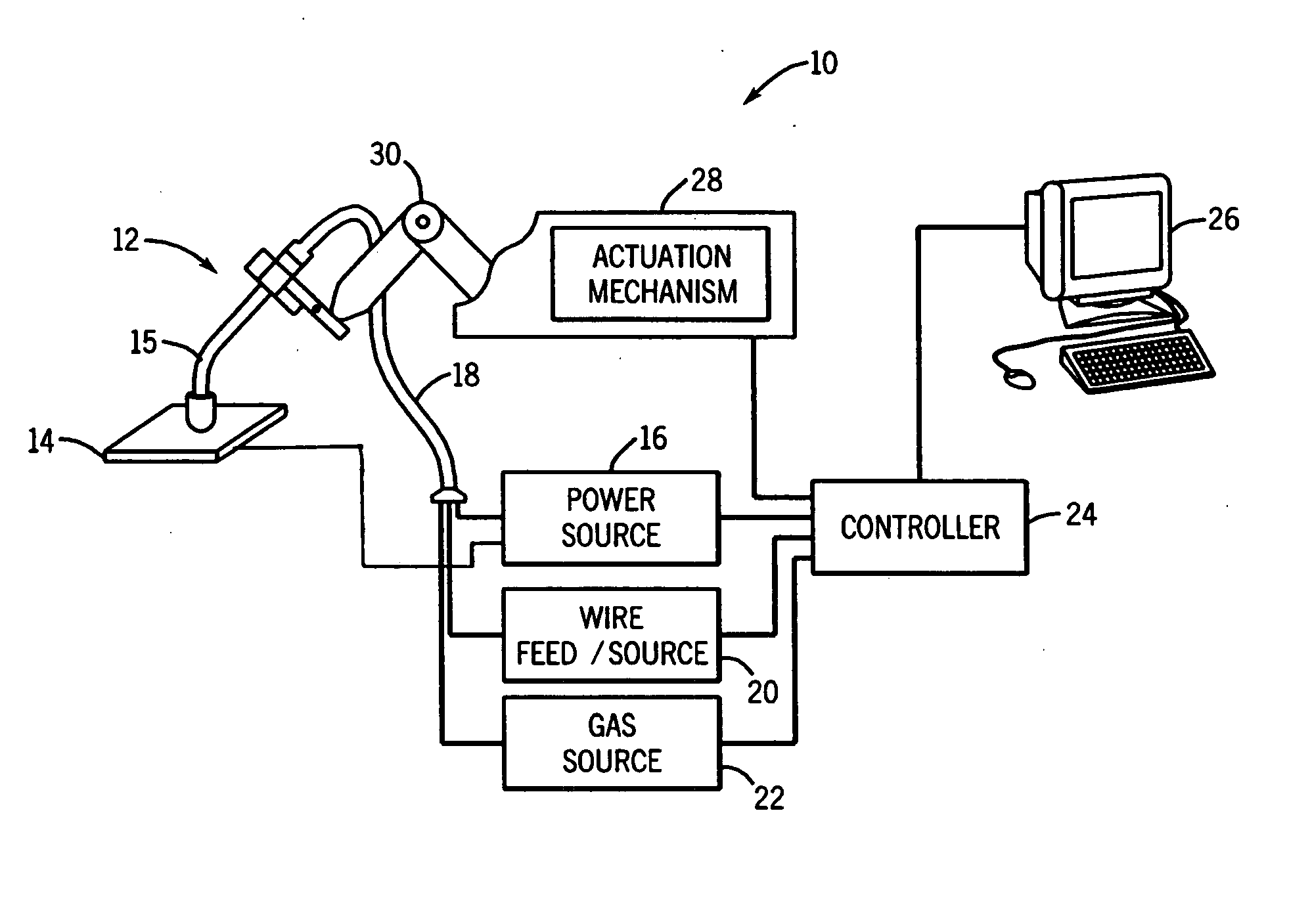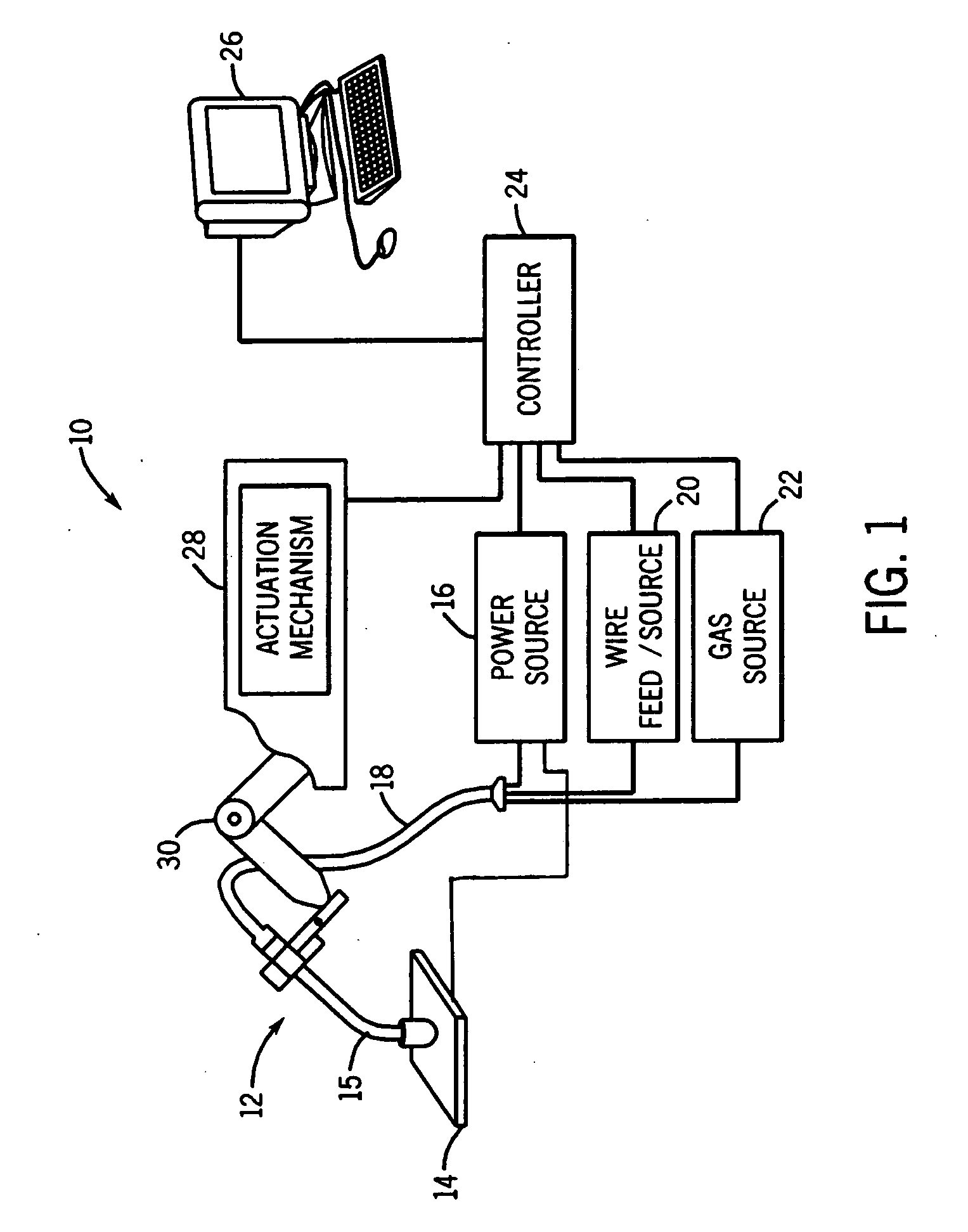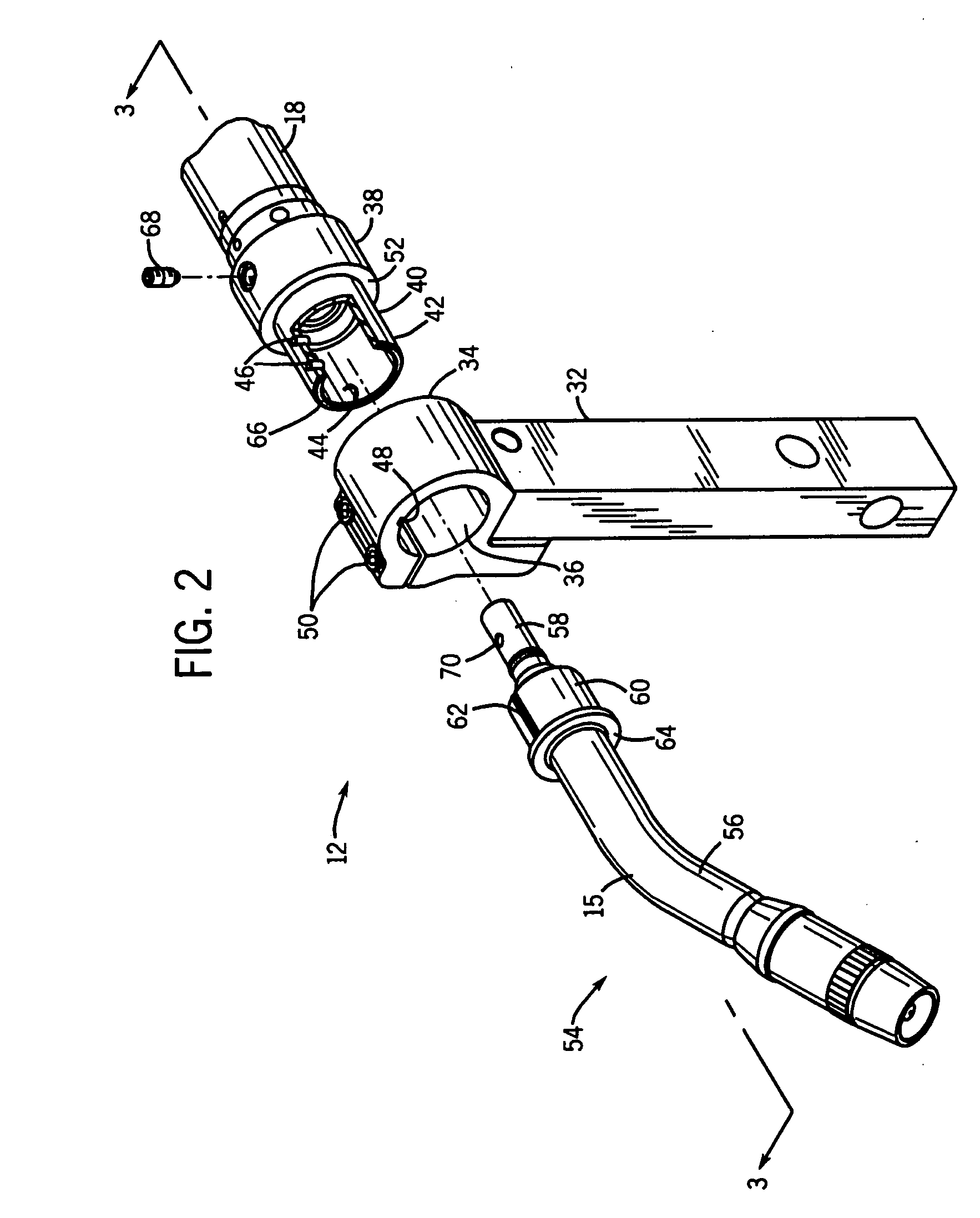Alignment mechanism for a welding torch
a welding torch and alignment mechanism technology, applied in the field of welding devices, can solve the problems of unsatisfactory clearance, undesirable impact of the welding torch on the surrounding environmental structure, and the inability to secure the welding of various components, and achieve the effect of convenient securement and alignment of various components
- Summary
- Abstract
- Description
- Claims
- Application Information
AI Technical Summary
Benefits of technology
Problems solved by technology
Method used
Image
Examples
Embodiment Construction
[0014] Turning to the figures, FIG. 1 illustrates an exemplary gas shielded and wire-feed robotic welding system 10. Prior to continuing, however, it is worth noting that the following discussion merely relates to exemplary embodiments of the present invention. As such, the appended claims should not be viewed a limited to those embodiments discussed herein. Indeed, the present invention provides benefits to both robotic and non-robotic welding systems as well as to both shielded and non-shielded welding devices. In summary, the present invention, which, in a general sense, relates to improved apparatus and methods for component alignment, is applicable to a vast number of systems and devices in which alignment of a resource providing component is a concern and should not be limited to welding systems. Indeed, the present invention provides benefits to fluid spray systems, for example.
[0015] Returning to the exemplary welding system 10, it includes a welding torch 12 that defines t...
PUM
| Property | Measurement | Unit |
|---|---|---|
| friction | aaaaa | aaaaa |
| electrical current | aaaaa | aaaaa |
| electrically | aaaaa | aaaaa |
Abstract
Description
Claims
Application Information
 Login to View More
Login to View More - R&D
- Intellectual Property
- Life Sciences
- Materials
- Tech Scout
- Unparalleled Data Quality
- Higher Quality Content
- 60% Fewer Hallucinations
Browse by: Latest US Patents, China's latest patents, Technical Efficacy Thesaurus, Application Domain, Technology Topic, Popular Technical Reports.
© 2025 PatSnap. All rights reserved.Legal|Privacy policy|Modern Slavery Act Transparency Statement|Sitemap|About US| Contact US: help@patsnap.com



